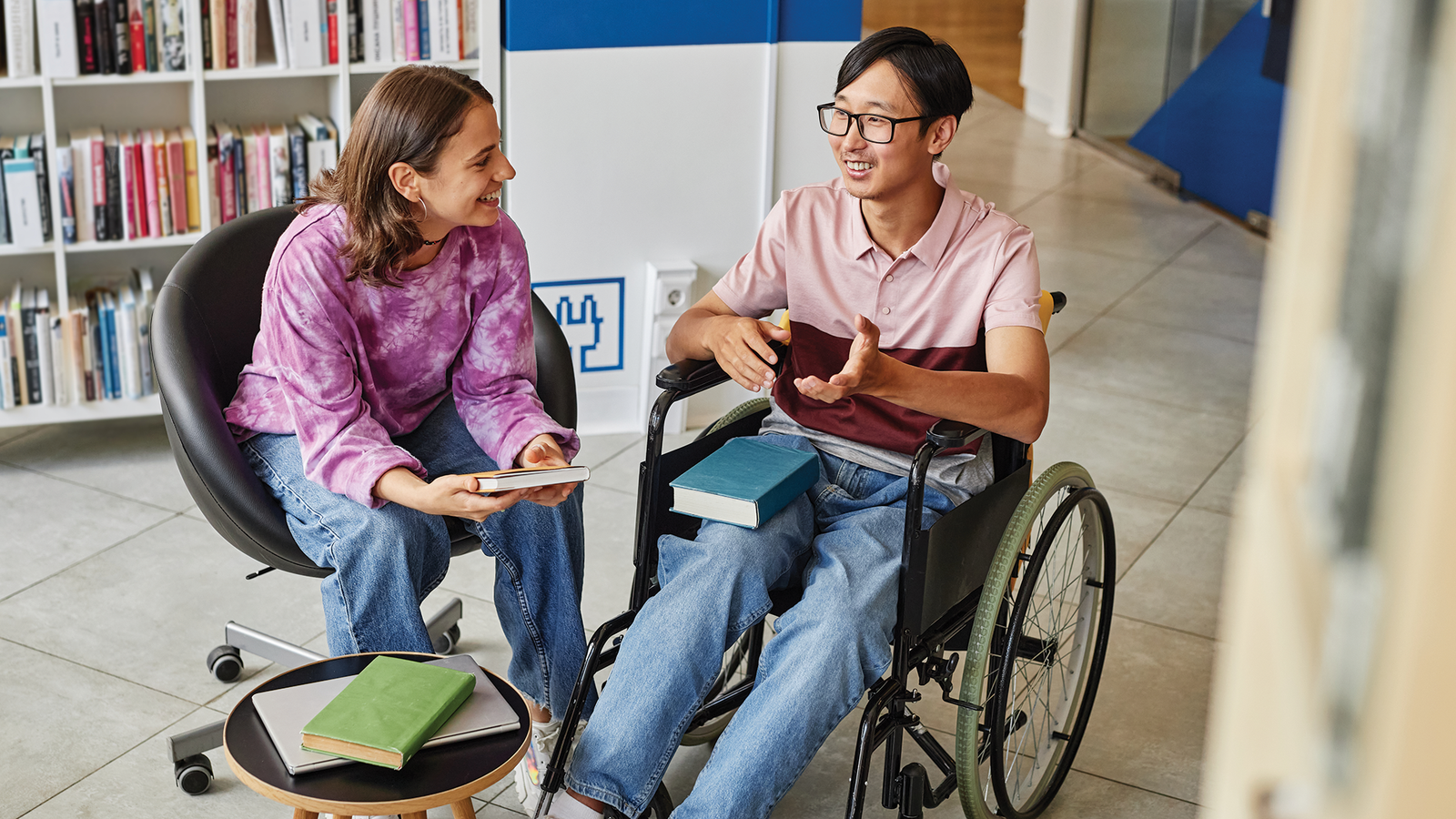Over the past year, the University of Maryland (UMD) has been awarded six new contracts and has launched a new digital accessibility project to promote greater diversity, equity, inclusion, and opportunity for individuals with disabilities in higher education and the workforce.
Most recently, the university’s Center for Transition and Career Innovation (CTCI) was awarded a series of contracts totaling $7.1 million. Each involves coordinating state education agencies to improve the transitional phases between secondary and postsecondary education and the workforce for people with disabilities.
“By engaging in this research and building partnerships among education, vocational rehabilitation, and human service agencies, our center can help pave the way for a more coordinated system of services for youth with disabilities,” says CTCI Director Christy Stuart. “This will ultimately empower youth to break down barriers and reach their full potential.”
The two largest contracts were awarded through the U.S. Department of Education’s (ED) Disability Innovative Fund grants for Pathways to Partnerships. The projects, which are specific to Connecticut and Maryland, received $3.7 million and $2.4 million over five years, respectively. The Connecticut contract, funded by ED and the Connecticut Bureau of Rehabilitation Services, tasks the CTCI with creating clear pathways to college and the workforce for individuals with disabilities through the development of a collaborative model between institutions and community partners.
“By engaging in this research and building partnerships among education, vocational rehabilitation, and human service agencies, our center can help pave the way for a more coordinated system of services for youth with disabilities. This will ultimately empower youth to break down barriers and reach their full potential.”
– Christy Stuart
The Maryland contract, funded by the federal and state departments of education, focuses on improving transition services for children and youth with disabilities, emphasizing career development and competitive integrated employment, facilitating collaboration between educational and vocational agencies to enhance service coordination, resource sharing, and data exchange. The program also provides information on preemployment transition services and vocational rehabilitation services.
CTCI also received an $800,000 five-year contract to assist ED’s Rehabilitation Services Administration in evaluating 20 states that received Disability Innovation Fund grants.
Smaller awards include a project with the Iowa State Department of Education to disseminate a new secondary education transition framework and create career development and education modules for students with disabilities. CTCI also won a grant to work with the Connecticut State Rehabilitation Board to assess its vocational rehabilitation agency as well as a contract with the Vermont Department of Human Services to support educators who provide career readiness services to high school students with disabilities.
Maryland Initiative for Digital Accessibility
In addition to UMD’s involvement with these grants, the university has also launched the Maryland Initiative for Digital Accessibility (MIDA), a multidisciplinary project involving more than 39 faculty and staff members across seven UMD colleges. The initiative promotes greater accessibility in digital technology research, development, and education.
Digital tools are often designed without considering the needs of people with disabilities, and accessibility remediation is a costly and time-consuming process. MIDA seeks proactive integration of accessibility, advocating for a “born-accessible” approach. Its goals include fostering a community passionate about digital accessibility at the university, engaging with external stakeholders such as disability rights groups and technology companies, developing technology projects for enhanced accessibility, fundraising to support its mission, and increasing awareness of digital accessibility through public events
and programming.
“With digital technology and content often designed to be inaccessible, a reactive remediation process is required that may be unnecessarily expensive, reflects bad design, and fails to recognize the humanity of people with disabilities because there is a delay in access during the time that the technology is being remediated,” says Jonathan Lazar, PhD, professor in UMD’s College of Information Studies. “Our goal is to work with campus partners and external partners to influence digital technology design research and practice so that it involves the disability community as an equal partner, accessibility is proactively built in, and we demonstrate the success of technology projects that are ‘born-accessible.’”●
This article was published in our January/February 2024 issue.





















